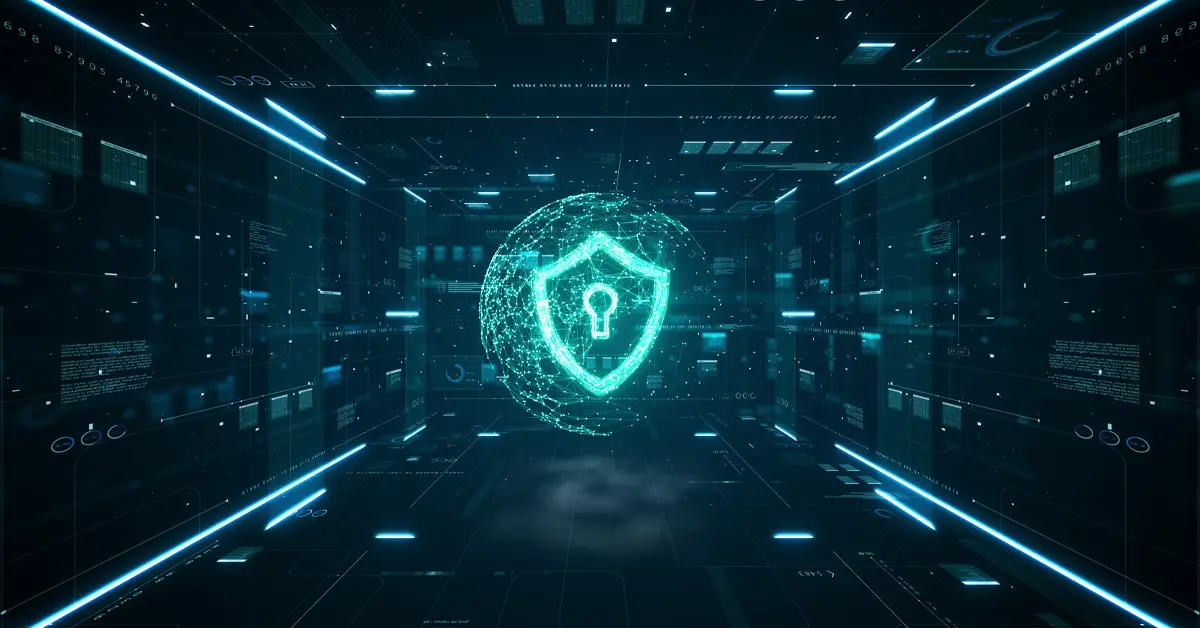The healthcare industry experiences more data breaches than any other industry, with over 700 reported breaches in 2020 alone. This alarming statistic underscores the importance of protecting patient data in the healthcare industry. As the digitization of healthcare records continues to increase, patient data is becoming more vulnerable to cybersecurity attacks. This means that not only is patient data at risk, but the financial stability and reputation of healthcare organizations are also in danger. It is essential for healthcare organizations to implement effective cybersecurity solutions to protect their patients and their own interests.
What is Healthcare Cybersecurity? How it Differs from Traditional Cybersecurity?
Healthcare cybersecurity is the practice of protecting healthcare organizations and their patients from cyber threats, such as data breaches and ransomware attacks. It involves implementing and maintaining secure systems and processes to ensure the confidentiality, integrity, and availability of electronic healthcare information.
Healthcare cybersecurity differs from traditional cybersecurity in a few ways. First, the healthcare industry handles a large amount of sensitive and personal information, such as medical records and insurance information. This means that the consequences of a data breach or cyber-attack can be much more severe in the healthcare industry than in other industries.
Second, the healthcare industry has unique compliance requirements, such as the Health Insurance Portability and Accountability Act (HIPAA) in the United States, which sets standards for the protection of electronic healthcare information. These requirements must be considered when implementing cybersecurity measures in the healthcare industry.
Finally, the healthcare industry relies heavily on technology, including electronic medical records systems, telemedicine platforms, and medical devices connected to networks. This increased reliance on technology makes healthcare organizations more vulnerable to cyber threats, and requires a strong focus on cybersecurity.
What are the Challenges Faced by Healthcare Organizations about Cybersecurity?
One of the biggest challenges for cybersecurity for healthcare organizations is the increasing amount of patient data that is being digitized. With more and more medical records being stored electronically, there is a greater risk that this data could be accessed by unauthorized individuals.
Other challenges for cybersecurity in healthcare include:
- The diversity of medical devices and systems: Healthcare organizations often use a variety of medical devices and systems, each with their own unique security vulnerabilities. This can make it difficult to implement a comprehensive cybersecurity plan that protects against all potential threats.
- The use of third-party vendors: Many healthcare organizations rely on third-party vendors to handle aspects of their operations, such as billing and scheduling. These vendors may not have the same level of security as the healthcare organization, creating additional vulnerabilities.
- The evolving nature of cyber threats: Cyber attackers are constantly developing new methods to access sensitive data. This means that healthcare organizations must regularly update their security protocols and employee training to stay ahead of these threats.
- The need for compliance with regulations: Healthcare organizations must adhere to strict regulations to protect patient data. This can add an additional layer of complexity to implementing and maintaining effective cybersecurity measures.
What are the Consequences of a Cybersecurity Breach in Healthcare?
A cybersecurity breach in the healthcare industry can have serious consequences, both for the affected organization and for the individuals whose data has been compromised. A cybersecurity breach in the healthcare industry can lead to false diagnoses and treatment decisions based on compromised or falsified data. This can have serious consequences for patients, including incorrect treatment or a delay in receiving appropriate care. Here are the consequences that providers and healthcare organizations may face:
- Loss of trust from patients and stakeholders: When patient data is compromised, it can erode trust in the organization, leading to a loss of clients and revenue.
- Financial losses from legal fees and fines: Organizations may face legal fees and fines if they fail to adequately protect patient data. These costs can be significant and can threaten the financial stability of the organization.
- Damage to the organization’s reputation: A cybersecurity breach can damage the reputation of the affected organization, leading to a loss of clients, decreased revenue, and negative media attention. This can be difficult to recover from and can take a significant amount of time and effort to overcome.
To mitigate these risks, healthcare organizations should implement robust cybersecurity solutions and best practices to protect against attacks and ensure the security of patient data.
How Can Healthcare Organizations Protect Themselves?
There are several best practices and strategies that healthcare organizations can use to protect themselves from cybersecurity threats. Some examples include:
- Implementing strong and unique passwords for all systems and devices
- Regularly updating and patching software and systems to fix known vulnerabilities
- Using encryption to protect sensitive information, both in transit and at rest
- Implementing access controls to limit who can access certain systems and data
- Regularly training employees on cybersecurity best practices and policies
- Implementing network segmentation to limit the spread of malware and other threats
- Conducting regular security assessments and audits to identify and address potential vulnerabilities
Examples of effective healthcare cybersecurity solutions include:
- EHR encryption and access controls to protect electronic health records
- Network-level firewalls to prevent unauthorized access to a healthcare organization’s networks
- Medical device security solutions to protect devices such as pacemakers and insulin pumps
- Cybersecurity insurance to provide financial protection in case of a breach
- Cybersecurity risk management software to identify and mitigate potential vulnerabilities
- Incident response plans to quickly and effectively respond to a breach or cyberattack.
Overall, implementing a comprehensive and effective cybersecurity strategy is crucial for healthcare organizations to protect themselves and their patients from potential threats.
What are the US National Standards and Accrediting Organizations for Healthcare Cybersecurity?
In the United States, there are several national standards and accrediting organizations that provide guidance and oversight for cybersecurity in healthcare. Some examples include:
- The HIPAA, which sets the national standards for protecting sensitive medical information
- The National Institute of Standards and Technology (NIST), which provides guidance and best practices for implementing effective cybersecurity measures in healthcare
- The Healthcare Information and Management Systems Society (HIMSS), which offers cybersecurity certification programs and guidance for healthcare organizations
- The Joint Commission, which is a non-profit organization that accredits and certifies healthcare organizations, and has specific standards for cybersecurity
- The Centers for Medicare & Medicaid Services (CMS), which is a federal agency that sets standards for healthcare organizations that participate in the Medicare and Medicaid programs and includes requirements for cybersecurity.
Overall, these national standards and accrediting organizations play a crucial role in promoting and ensuring cybersecurity in the healthcare industry in the United States.
DrKumo’s Remote Patient Monitoring with Robust Cybersecurity Healthcare Solutions
DrKumo, the leader in connected health technology, provides remote patient monitoring (RPM) that is designed to comply with and implement the NIST and NCCoE, as well as the HIPAA.
DrKumo’s cybersecurity solutions for RPM technology include encryption and access controls to protect the data that is collected and transmitted through remote monitoring systems, as well as network-level security to prevent unauthorized access to patient data.
Additionally, DrKumo offers training and support for healthcare organizations, providers and patients on using remote monitoring systems securely, in compliance with the NIST, NCCoE Cybersecurity Framework, and HIPAA.
DrKumo’s RPM is a cost-effective solution that offers both convenience and security for healthcare organizations, providers and patients. By using these systems, healthcare organizations can provide high-quality care to their patients, while also protecting sensitive information and safeguarding against potential threats.
Takeaway
Healthcare cybersecurity is crucial for protecting sensitive medical information. By implementing effective solutions, such as encryption and access controls, healthcare organizations can protect themselves and their patients from cyberattacks. National standards and accrediting organizations, such as HIPAA and NIST, provide guidance and oversight for implementing effective cybersecurity measures. Cost-effective solutions are also possible through careful planning and prioritization. Investing in robust healthcare cybersecurity is essential for providing high-quality, secure healthcare services.
If you want to protect your patients and ensure the security of your remote monitoring systems, contact DrKumo to learn more about our solutions.








